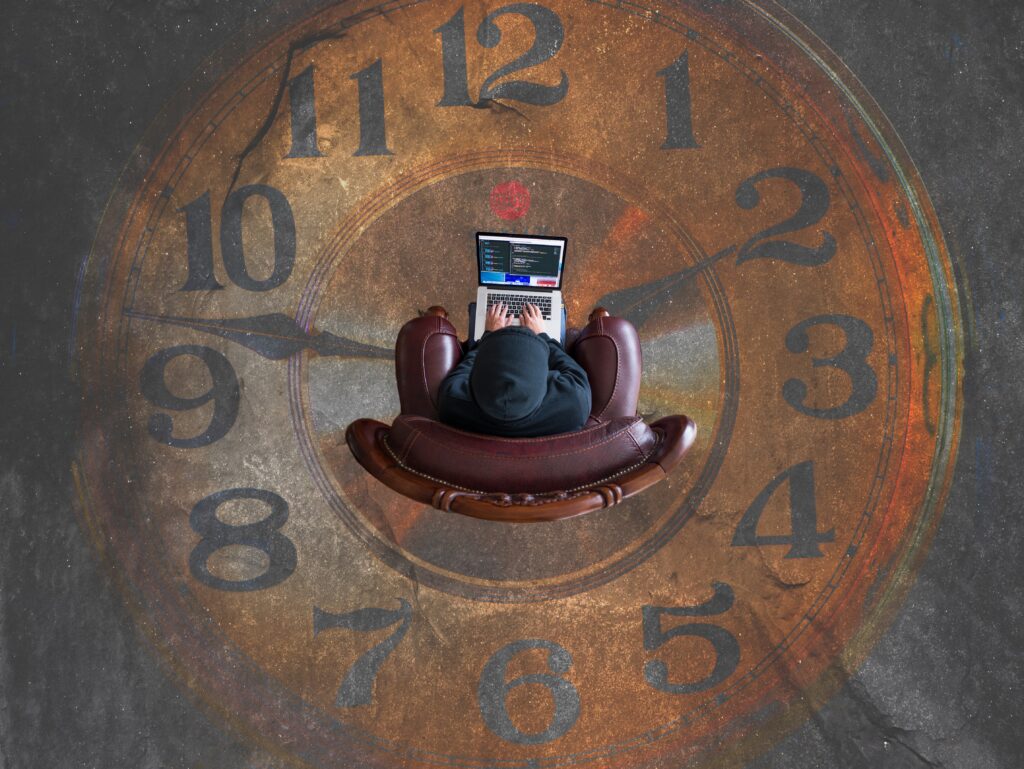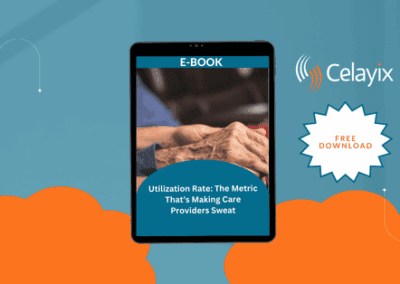When and why did Psychological Safety at Work become prevalent? In 2015, Google’s People Operations team conducted 200+ interviews over two years with a simple objective: To understand what makes the team effective (and successful). According to their findings from this study, five fundamental dynamics distinguish effective teams from others. They are:

- Psychological safety: Can we take risks on this team without feeling insecure or embarrassed?
- Dependability: Can we count on each other to do high-quality work on time?
- Structure & clarity: Are goals, roles, and execution plans on our team clear?
- Meaning of work: Are we working on something important for each of us?
- Impact of work: Do we fundamentally believe that our work matters?
While each of the factors described above plays a distinct role in facilitating effective teamwork, this article will concentrate on the first crucial point: Psychological Safety. This blog post aims to underline the significance of psychological safety and to give suggestions on how employers might foster psychological safety at work.
What is Psychology Safety?
Psychology safety can be defined as a condition where human beings feel
- Included,
- Safe to learn,
- Safe to contribute, and
- Safe to challenge the status quo
Furthermore, it is crucial to emphasize that these sentiments should be expressed without fear of being humiliated, excluded, or penalized. The four phases of psychological safety represent the organic development of cognitive requirements in social circumstances. When teams, companies, and social units go through the four stages, they create highly inclusive environments, enhance learning, boost contribution, and encourage creativity.
Psychological Safety at Work
What exactly is psychological safety at work?

It is a shared belief among team members that others will not disgrace, reject, or condemn them for speaking up. When there is psychological safety in the job, individuals feel free to be themselves. They bring their whole self to work and are comfortable putting everything on the line.
Extensive studies have been conducted on workplace mental health and psychological risk factors. Researchers at Simon Fraser University found 13 organizational characteristics that influence organizational health, individual employee health, and the financial bottom line, including how work is performed and where work happens. They are:
- Balance
- Civility and Respect
- Clear Leadership and Expectations
- Engagement
- Growth and Development
- Involvement and Influence
- Organizational Culture
- Protection of Physical Safety
- Psychological Competencies and Demands
- Psychological Protection
- Psychological and Social Support
- Recognition and Reward
- Workload Management
Celayix recommends reading the research paper to understand these Psychological Risk Factors in greater detail. However, we’re yet to elaborate on why promoting psychological safety at work is essential. That’s our next section!
Importance of psychological safety at work
The study conducted by Google mentioned earlier identified psychological safety at work as of higher importance than the other dynamics for practical work. Why?

Taking a risk in front of your teammates appears to be straightforward. But think about the last time you worked on a project. Did you feel comfortable asking what the aim was without seeming like you’re the only one who doesn’t know? Or did you continue without clarifying anything to avoid being viewed as uninformed?
We’re all hesitant to engage in actions that could harm how others view our competence, awareness, and optimism. Although this type of self-protection is a natural working technique, it is counterproductive to effective teamwork. On the other hand, the more comfortable team members feel with one another, the more likely they are to acknowledge mistakes, collaborate, and take on new duties. And it impacts almost every critical characteristic we consider when hiring new staff—not convinced? We’ve identified seven key reasons why psychological safety is essential at work, backed with evidence!
Psychological Safety Enhances Employee Engagement
It is simpler for team members to participate when they feel protected at work. This might be at a team meeting, problem-solving, project collaboration, or connecting with customers and colleagues. Furthermore, safe teams encourage employees to be completely present at work rather than dozing off or counting the hours until the workday is done.
Psychological Safety Fosters an Inclusive Workplace Culture

Making all team members feel involved is more crucial than ever. Psychological safety enables all team members to thrive, regardless of gender, colour, ethnicity, background, or political affiliation. Consequently, everyone feels linked and part of a united front, creating a rich give-and-take experience.
Psychological Safety Inspires Creativity and Ideas
Team members must feel comfortable expressing themselves for creativity and ideas to flow spontaneously. Consider how many unique ideas were never shared because a team member didn’t feel comfortable doing so.
Psychological Safety Improves Employee Well-being
Mental health has a significant impact on overall well-being. Psychologically healthy employees find it simpler to operate at their best and avoid stresses that prevent them from doing so.
Psychological Safety Creates Brand Ambassadors
One of the finest ways to encourage team members to become the company’s brand ambassadors is by creating a psychologically secure environment. When team members are treated well, they cannot help but rave about their excellent jobs.
Psychological Safety Reduces Employee Turnover
According to the study conducted by Google, team members who feel psychologically comfortable at work are less likely to quit. Why leave a firm that respects you and makes you feel secure and valued?
We’ve already discussed the High Costs of Employee Turnover in another blog. The expenditures of interviewing, employing, and training team members are exorbitant (among other costs). Employee turnover is unsustainable in a successful organization.
Psychological Safety Boosts Team Performance

Teams achieve their goal when they have highly engaged personnel who do not want to leave. Teams perform when there is an inclusive workplace atmosphere, brand advocates, and creative ideas. Combining all of the above with healthy staff gives you a winning recipe for improving team performance.
A lack of psychological safety at work has serious business consequences. First, when individuals aren’t comfortable discussing failed projects, the company isn’t prepared to avoid failure. When employees aren’t committed, the organization misses out on using the assets of all its people. To produce ideas that make a meaningful impact, people must feel safe standing out, asking silly questions, and disagreeing with the status quo.
Psychological safety at work does not imply that everyone is always pleasant. Psychological safety means you welcome confrontation and you speak up, confident that your team has your back and you have theirs. So how can you or any manager promote psychological safety at work?
How to Promote Psychological Safety at Work
As a leader, you must hold employees accountable for performance metrics—but your work does not end there. You must also keep employees engaged by making them feel at ease and establishing a shared perception that the team is risk-free. Following are some tips that would promote psychological safety at work.
Show your team you’re engaged.
They will go if your employees believe you are not paying attention when they talk or do not appreciate their ideas and opinions.

Being present throughout meetings demonstrates involvement. Making eye contact and closing your laptop are examples of this. During a session, it’s simple to become distracted by emails, text messages, or Slack—but even little acts of disengagement may severely influence your team’s psychological safety.
Listening to what others have to say is also part of the engagement. Active listening should be practised. Ask questions to understand the views or beliefs of others. By actively participating, you create an environment where individuals feel it is acceptable.
Let your team see you understand
People feel psychologically comfortable knowing you care enough to comprehend and consider their point of view.
Show comprehension by reviewing what has been heard. “What I heard you say is ______,” for example. Is that right?” This demonstrates your desire to comprehend their point of view. It also allows your team members to explain if you misinterpreted what they stated.
Body language can also be used to demonstrate comprehension. During talks, nod your head to recognize what an employee is saying. Lean forward to indicate interest. Keep an eye on your facial expressions. Your employees will notice if you appear exhausted, bored, or dissatisfied. Make sure that doesn’t happen!
Avoid blaming to build trust.
When anything goes wrong, it’s natural to search for someone to blame. However, focus on solutions to create and sustain psychological safety in the workplace.

Instead of asking, “What occurred and why?” ask, “How can we do this better the next time?” Take note of the emphasis on collaborative language: How can we ensure that this happens quickly the next time? Instead of singling out an individual for a mistake, using “we statements” converts blame into a collaborative endeavour.
Be self-aware—and expect the same from your staff.
People contribute their complete selves to work, including their distinct personalities, interests, and work styles. Increase self-awareness on your team by discussing how you work best, how you prefer to communicate, and how you like to be acknowledged. Encourage your team colleagues to do the same. High-performing firms use behavioural tests to help employees develop self-awareness. Assessments can also be used to improve psychological safety in the workplace.
Place an end to negativity.

Talk to a team member if they are speaking adversely about others. Make it evident that you operate as a team and that negativity will not be tolerated.
Negativity may become contagious and spread to others when leaders allow it to fester. Employees will believe that they are either expected to speak negatively about others or that others are presumably talking negatively about them. It’s a psychological safety killer in any situation.
Engage in decision-making with your team.
Consult your team while making decisions. Inquire about their ideas, views, and feedback. This will not only make individuals feel included in decision-making but also develop psychological safety and contribute to better outcomes.
Explain your decision after you’ve made it. How did their input influence the decision? What were other factors considered? Even if your employees disagree, they will value honesty and candour.
Being incisive and open is especially important if you are a senior leader in the firm. According to Predictive Index’s 2019 Employee Engagement Report, the number two reason for disengagement is a lack of confidence in senior leadership.
Be open to feedback.
Your obligation as a leader is to make the final choice on various issues. Your staff needs to know that you are confident in your role and adaptable and receptive to their comments.
Employees who feel psychologically comfortable are more likely to provide feedback—up, down, and across the board. This implies they are confident enough to knock on the CEO’s door when crucial information has to be shared.
Invite your team to disagree with you and push back. While this may be unsettling initially, healthy confrontation leads to better judgments and more responsibility, making it a win-win situation. You may also set a good example by taking interpersonal risks and exposing your shortcomings.

Champion your team.
Finally, it is critical to back up and represent your team. Show them you’re on their side by assisting with personal and professional development. To boost visibility into what your team is accomplishing, share the team’s work with senior leadership—and offer credit to teammates where deserved.
Tackling psychological issues at work
There are also additional essential workplace issues that impact employee mental health. There are several variables within each problem that companies must address in their attempts to establish a psychologically healthy workplace. You may always read our blogs about dealing with workplace discrimination, stress, job burnout, absenteeism, presenteeism, or bullying to learn more. It’s time to make psychological safety a PRIORITY.




